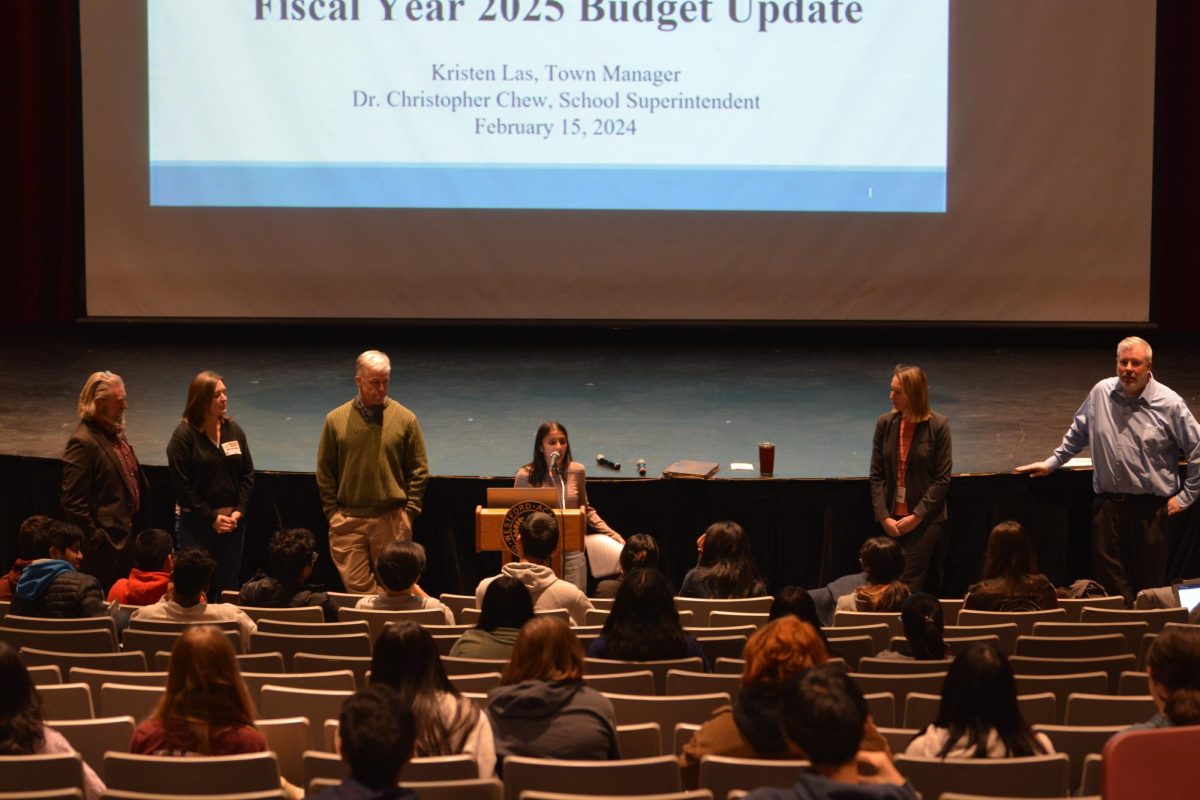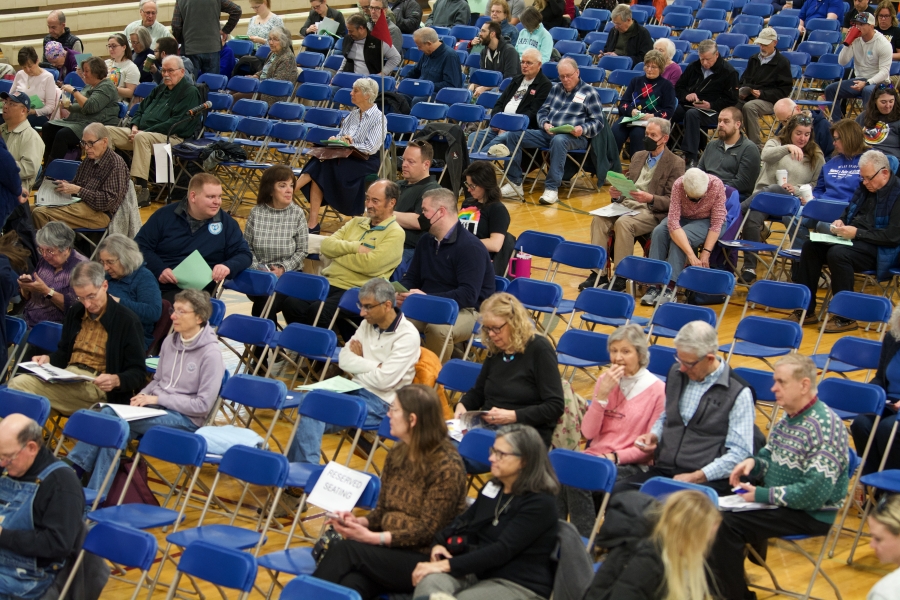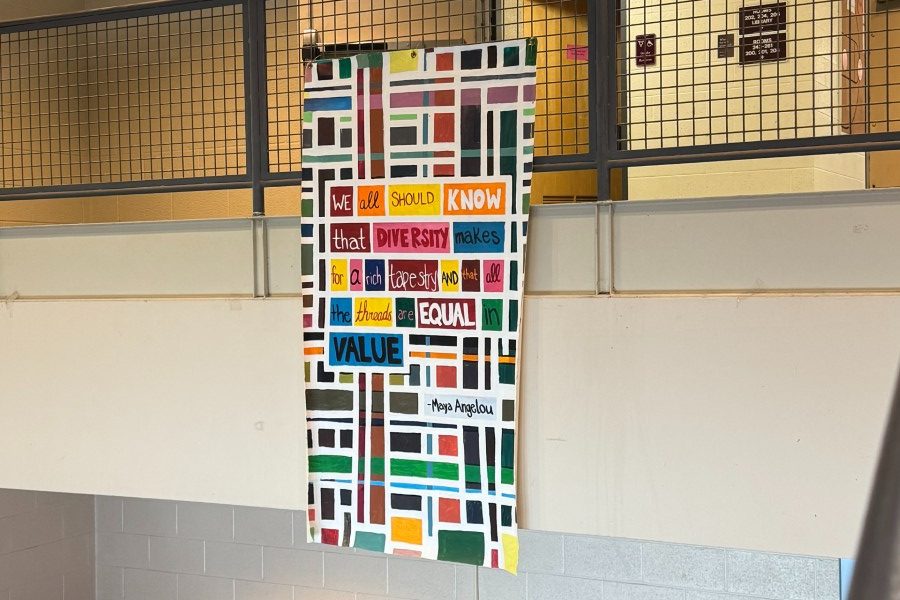A student forum for budget information, organized by the Westford Academy Student Senate and Student Advisory Committee (STAC), was held on Thursday, Feb. 15 from 2-3 p.m. in the Performing Arts Center to provide answers to student questions.
Students had the opportunity to submit questions through a google form posted on the Student Senate’s Instagram the week before the forum if they were unable to attend the discussion in person.
Junior and Co-Chair of the Student Senate Saanvi Arora was responsible for presenting the idea of a student forum for discussion, but an organized event to answer questions about the budget cuts had been brought up across the different branches of student government.
“Across student government, we’ve talked about having a student-oriented event regarding the budget for a while now,” senior and Student Advisory Committee member Mysha Khan said.
Arora chose to include Khan to help facilitate the event along with Chair of the Student Senate and senior Sai Datla in order to make the event a joint effort between two groups advocating for student representation.
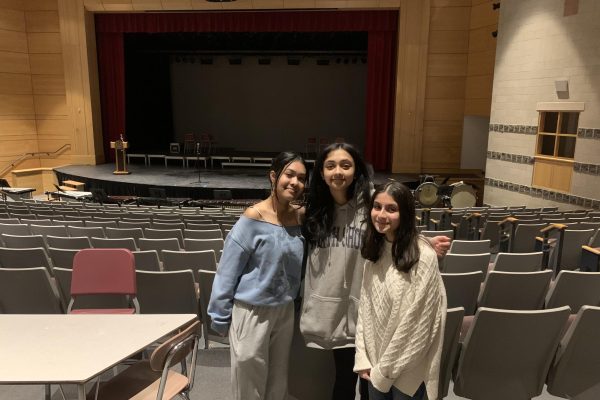
The idea was then brought to Principal Dan Twomey, Chew, and members of the School Committee to determine if they would be willing to present the budget information and answer questions. Both Twomey and Chew were in agreement that a presentation and discussion about the budget would be beneficial for students and clear any misinformation.
“I think anytime where we have an opportunity to listen to students talk directly about what their concerns are in an open and nonjudgmental non-academic environment, I think it definitely provides us more information to do what’s best for the students,” Twomey said.
The discussion began with a question submitted through the google form asking about the people involved in the budget decision making process.
Superintendent Christopher Chew explained that he works with principals and administrators at all school levels to develop the WPS budget which he presents to the School Committee. The committee then deliberates upon the budget until they feel it meets the needs of each school. After the School Committee finalizes their plan, the WPS budget is incorporated into the town budget by Town Manager Kristen Las and School Committee Secretary Bill McDonald.
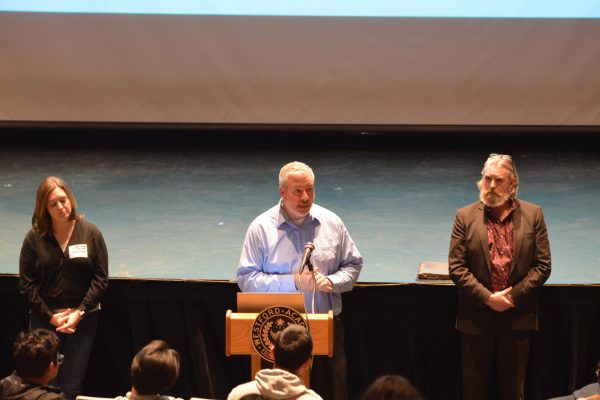
“It’s sort of that partnership between myself and the school committee to determine what [the budget] is, but their responsibility is to vote on that specific number,” Chew said.
One student asked if the cuts to WA would be impacted by courses selected by students during class registration. According to Chew, due to the possible reduction in staff members, doubling up in subjects and elective choices will become limited regardless of course selection. However, the electives offered will be impacted by the enrollment of students in classes.
“We will still be able to provide what we need for your graduation requirements, but the vast array of options that exist might become limited. It is going to be driven, in both cases, by what those requests are,” Chew said.
Another question asked by a student was if clubs will be impacted by the cuts. Chew explained that while no clubs will be deliberately cut from the schools, the decreased number of teachers will make it difficult to ensure that clubs have advisors.
An additional topic that was clarified at the forum was that there are no plans to cut the Mandarin program at this point in time. Although the School Committee closely examines data that allows them to determine the necessary aspects of the WPS budget, School Committee Chair Valery Young emphasized that the opinions of the community are very helpful during their decision making.
“We hear from residents and families all the time about what their priorities are,” Young said. “We try to match the reductions in the budget […] with things that we think are important, but it’s important for us to hear from families, students and staff.”
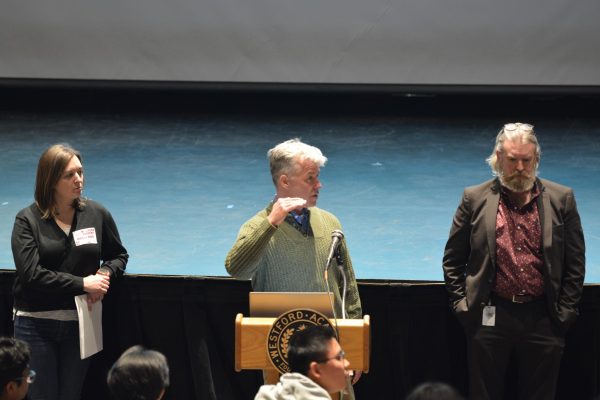
Sophomore Jefferey Xu, a member of Student Senate and a participant in the forum, felt it was very helpful in answering his questions and spreading necessary information to the student body. He felt that more students would have benefited from attending the student forum not only to spread important information, but also to foster an interest in town government.
“This is where [engagement] starts. At the youth level,” Xu said. “[If] you get interested now, you’re interested for life. I think we need more active citizens in our world and [the forum] is the way to do it.”
The forum also included a budget presentation from Las and Chew summarizing the progress of the School Committee, Select Board, and Finance Committee. According to Las, the budget deficit is largely the result of an increase in inflation. Many contracts the town signed off on, including electricity and gas, have become more expensive. Moreover, the increasing cost of living has required that contracts with school staff and town employees be raised as well.
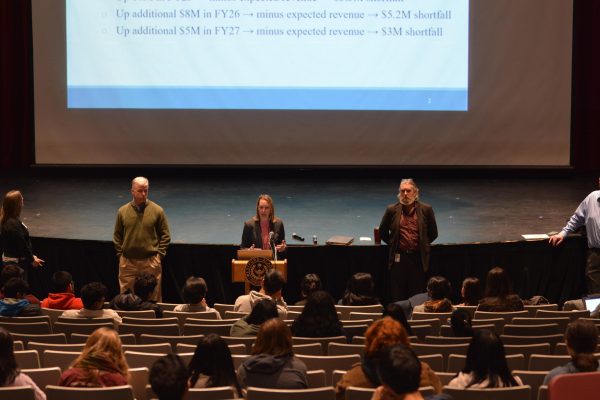
Las described the role of the Budget Task Force and explained that in addition to creating the possible budget plans, the Task Force is researching town revenue and expenses to find more ways to increase revenue and budget-neutral or cost-saving services.
Then the budget cuts that would take place in a no override scenario were listed. A reduction in public safety employees including firefighters, police officers, emergency dispatch, and Department of Public Works staff would all be reduced, and library hours would be reduced as well.
To conclude her presentation, Las detailed the ways the town is planning to increase revenue, which included selling gas from the Department of Public Works for a lesser price than gas stations, increasing recycling programs, reducing outsourcing of services, and re-examining permit fees.
One final source of revenue Las shared was that the town is planning to increase housing development for multifamily housing.
Chew also described the role of the School Committee and the current effects of both budgets on the Westford Public School system. He began by explaining the effect enrollment has on the creation of the budget, as enrollment determines the number of required staff positions which in turn determines the total salaries and costs the school must pay.
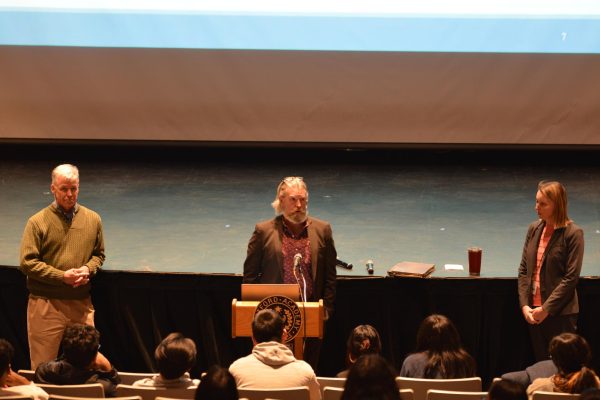
According to Chew, in the no override budget, significant reductions would be made at all school levels to meet the budget constraints. Specifically, up to 50 instructional staff positions across K-12 would be cut, resulting in less support for students, less interventionists, and fewer course offerings. However, with the override of Proposition 2 ½, state taxes can be raised beyond the annual increase limit to meet the budget constraints, resulting in much smaller cuts.
Aside from the override scenarios, the School Committee has planned to outsource special education transportation to increase revenue.
The budget discussion is the first forum Twomey has helped to organize, however, he hopes to continue with events similar to the forum to promote discussion and participation from all students at WA.
“I would definitely like to do different types of these [conversations] large ones, small ones during the school day, after school,” Twomey said. “I think it’s always an opportunity to get direct feedback from students.”
Twomey is hoping to take inspiration from ADL when conducting these discussions and test out the benefits of both larger and smaller groups when talking about these impactful topics.
All members of the forum encourage students to reach out to administrators with any more questions or concerns.
The members of the School Committee can be reached by emailing School-Committee@westfordma.gov.

